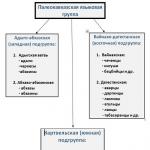Many people ask this question. However, this issue becomes truly problematic after you have entered graduate school. So let's look at the basic concepts...
What is it
Postgraduate study is needed in order to obtain a candidate's degree. If you have just graduated from a university and received master's or specialist status, you can enroll in graduate school.
In theory, graduate school is needed in order to educate scientific personnel who would move science forward. However, in reality everything is completely different...
The fact is that graduate school as a forge of scientific personnel has long outlived its usefulness. However, it is worth mentioning that a lot depends on the specific university. However, in global terms, graduate school has ceased to be something important and necessary.
This is especially felt when you have just entered there.
You think that you will receive brilliant advice there, communicate with brilliant scientists, move science forward... But in reality everything turns out to be completely different. Getting a PhD is 90% bureaucracy and 10% science. The candidacy is defended not by the smartest, but by the most cunning.
Statistics are easy to find. Go to any graduate student forum and see the reasons for admission. Statistics show that only 10% go to graduate school for the sake of science. So here's the list...
Deferment from the army
This is the most common reason. If you are subject to conscription, then when you enter graduate school you will be asked directly: “Are you leaving the army?” If you say “Yes,” then with an 80% probability you will not be accepted into graduate school (although they will be accepted into commercial school).
The university needs you to do science and not avoid the army. But there are many nuances here.
It is very easy to get into commercial graduate school. And if you still have a diploma with honors, then this will be easier to do. And considering that there are a lot of universities with accredited postgraduate programs, there is no problem in admission. If you have a lot of B's in your diploma, but you have participated in a conference at least once, then you will also be accepted. If you have C grades, then it will be impossible to enroll.
In addition, paying for 3 years of graduate school is much cheaper than buying yourself a military ID. And most guys already have a job or their own business by the time they graduate from university. And give it all up for a year in order to work for free?!!! The army is not the place to be. Although if you want a military or law enforcement career, then you will need the army.
But you shouldn’t think that graduate schools are filled with “squints” - this is not so. After all, those who have at least some inclination towards science go to graduate school. Therefore, over time, you begin to become imbued with science and forget about the original reason for entering graduate school.

"Nerds"
This is the second most popular reason. Speaking in human terms, there are many people in graduate school who are used to studying. Such people do not have a job, they are always studying. Among them there are those who do not want to lose their student spirit. They are afraid of the world.
If such people still defend their PhD, they become eternal teachers. Pichal:(
If YOU are one of these people, then come to your senses and start working! Graduate school without practice is a waste of time.

Those who advance science
They are not found in their pure form. Usually these are the people who are really useful for Russian science. However, they pursue either a career, money, or fame. Such people rarely become teachers. They usually get high positions or go abroad.
Such people are easy to distinguish. At the beginning of the 5th year, they find a supervisor and are already starting to publish and print.

Careerists
These are already adults. They need a candidate's credentials in order to advance in career ladder. This is especially true for officials who “clog up” the most delicious places in law schools.
Rest
There are people who study in graduate school, but do not understand why they are doing it. It seems that this is due to a special combination of life circumstances. Some people just follow the wave.
In general, everyone decides for themselves why they need graduate school. Postgraduate students of technical and economic specialties achieve particular success.
Your actions determine who you become. You can become just another teacher with no prospects, or you can become a famous scientist or use your knowledge to increase capital. Actually, money is the only criterion for a person’s success...
You can leave your reasons and opinions in the comments.
Thank you for your attention!
Latest tips from the “Work & Career” section:
When to quit your job
A vacancy that will survive the crisis: sales manager
There is one pattern - the clearer the outlines of the diploma and the closer the day of its defense, the more often the thought comes to you: “Should I go to graduate school?”
The first thing worth saying is that not all graduate students defend their dissertations and not all candidates devote their lives to science. But then why do we need graduate school? The most common reasons are deferment from the army, a place in a dormitory, many are simply due to inertia, because of the habit of studying and living in a university environment, pride, or generally “just because.”
Others need these 3 years to determine their place in this life, to understand what they really need. One of my friends went to graduate school precisely for these reasons; as a result, she was so fascinated by scientific life that she could not imagine herself in any other activity. She goes to conferences, teaches German and Russian, conducts a special course in her specialty... And she’s very pleased.
But there may also be more practical considerations. If you have, say, a diploma in history, and you work as a manager, graduate school will become real alternative second higher education and will give you the opportunity to reinforce your practical skills with theoretical knowledge and a degree. One of my friends graduated from the physics department, worked during his studies and after as an analyst, and a couple of years later he entered a correspondence graduate school in economics. To my question "why?" I received a logical and expected answer: “Improve your qualifications.” One could ask again “why?”, but it’s clear - for the sake of career advancement. I think he will succeed.
Many girls get a degree for the sake of a teaching career at a university, so as not to sit at home and be exhausted at work from bell to bell. It’s interesting, not dusty and, it seems, still prestigious... A very worthy and enjoyable occupation if you don’t need to support yourself and anyone else.
There is an opinion that any academic degree and even the very fact of studying in graduate school is your additional advantage in the labor market. This is a rather controversial statement; there is no consensus on this matter. Much depends on the specialty and how related the work is to it. If connected directly, it may turn out an indispensable condition, if it is not connected in any way, it is logical that your HR degree (short for “Human Resources” - HR manager, i.e. the one who recruits new employees) will not impress and he will prefer a person, albeit less educated, but more experienced And, for example, abroad (our “PhD” is equivalent to a Western PhD) can even turn into a disadvantage: you will be considered “overqualified”, i.e. “too qualified”... In any case, do not delude yourself that the degree is will open all doors for you, but if presented correctly, it can be useful. So if you look more closely, you need graduate school!
Full-time or part-time?
The form of training depends on your goals. Do you want to have an extra “bow” on your resume, satisfy your own pride, prove to yourself and the whole world that you are capable of this? - Then it’s probably better to choose correspondence. Many people perceive it as a “defective” option for full-time study, but if you have everything in order with self-discipline and the problem of conscription into the army, as well as a place in a dormitory, is not relevant for you, correspondence graduate school clearly has more advantages. Firstly, you are not obliged to attend classes and/or teach, which means that over time you are much more free. Secondly, you are given not 3 years, but 4, to write your dissertation. Remember how often you were missing one night, one month... so, one year will be missing in the same way.
By law, part-time graduate students have the right to additional paid leave, and your employer is obliged to provide them to you. But in reality, if it is not the organization that guides you, but you went to study on your own initiative, it will take a long time to achieve legal leave and it is not a fact that you will achieve it. It's easier to quit. Employers can be understood - 30 calendar days for entrance exams, additional leave 30 calendar days every year + one day a week with fifty percent payment and three paid months to complete the dissertation... According to my calculations, it turns out to be about 11 months for all 4 years. Personally, I don’t know of a single example where a part-time graduate student spent all his time allotted vacations(except for my mother, but that was 20 years ago). Full-time postgraduate study is the choice of those who are aimed at a scientific or teaching career. A significant disadvantage is that experience shows that successfully combining full-time graduate school with full-time high paying job almost impossible (but not everyone cares about this, right?). It is clear that doing science is pleasant and prestigious. Another question is what a scientific career gives in material terms. It's been a long time commonplace that “in Russia they don’t pay for science.” But, firstly, there are knowledge-intensive areas - and large companies working in them need their own developments, and therefore good specialists. First of all, this is IT, some areas of physics, chemistry, geology. One of my geologist friends went to graduate school precisely for this purpose - higher professional education gives her the opportunity to practical work in large company, and the degree will allow you to study there theoretical research. That is, to implement the well-known formula: “satisfy your own curiosity at someone else’s expense.” And secondly, a specialist high level in ANY field, if desired, he will provide for himself.
In addition to full-time and part-time postgraduate studies, there is also the opportunity to apply for a job. You are assigned to the department (without entrance exams) and for 5 years you pass the minimum candidate exams, write and defend your dissertation. We are not talking about any kind of study; in fact, it is something like an external study.
Will they take it?
As for the admission conditions, the main requirement is that you must have a diploma of higher professional education (5 years). A bachelor's degree is usually not enough (a bachelor's degree is 4 years, and its logical continuation is not graduate school, but a master's degree). Age restrictions - no older than 35 years for full-time, and 45 for part-time. Study at budgetary basis You can only do it once and only if you have Russian citizenship.
What do we rent and how much do we pay?
Everything is standard here: specialty, foreign language, philosophy. Most likely, another 30-page abstract on the specialty and an interview with the proposed supervisor. If you have a master's degree and you took philosophy or a foreign language as your final exams, they can be counted. A definite plus is the presence of publications, but their absence is not critical. If you are applying for budget financing- you will have to go through a competition. What it is depends on the popularity and openness of the institute - about some you can say in advance that even submitting documents is useless. That is, they will, of course, accept you, but you still won’t be able to get in - all the places have long been distributed among “our own”. Competition for admission to RAS institutes ( Russian Academy Sciences) can reach up to 4-5 people per place, for some departments of the RAGS (Russian Academy of Public Administration) - 5-7, for departments of faculties of Moscow State University - rarely exceeds 1.5, but usually this is exactly the case when “all are our own”. There is usually no competition for paid graduate school; you just need to pass exams. Ideal option- if you manage to convince your superiors that the company is interested in your training. Then it will be called “targeted graduate school” and your employer will pay for it. If not, you pay yourself and this pleasure will cost on average from 1000 to 2000 USD. e. per year; correspondence is cheaper, but not much. And be prepared for the fact that your investment may not end there; for example, you will be required to pay for the dissertation council fee or the work of your opponents. The timing of the exams depends on the institute, usually it is either from the end of May to the beginning of July, or September-October. Rarely - in January.
So who needs graduate school?
Postgraduate study is needed - not only for those who dream of becoming a “great scientist” or simply miss out on leaving the army, this additional opportunity your professional and personal development. Ultimately, you do this for yourself, for your pride and to satisfy your own ambitions. Plus - you get experience in analytical work, writing scientific articles, preparing reports and reports. By the way, many people simply like the process itself: communicating with smart, educated people is worth a lot.
What will graduate school give you besides moral satisfaction and additional method self-expression? Education is important not only to receive, but also to be able to use it. Clearly understand what you are doing and for what purpose. Maybe there will be nothing as a result except another unnecessary diploma in the back drawer of the desk. Or maybe you’ll get another promotion, marry an academician, become a laureate Nobel Prize... Everything depends only on you. As always.
IN recent years many students aspire to become graduate students. This is because after defending their dissertation, they have more opportunities. Translated from Latin word"aspirant" means one who is striving for something. First of all, people who want to continue their education strive for knowledge. If the specialty is technical, they have the opportunity to make a discovery in the chosen industry. Humanities students, by obtaining a Ph.D. degree, increase their ranking in the labor market. Let’s take a closer look at what graduate school provides.
Benefits of graduate school
First of all, students pay attention to the fact that in graduate school it is possible to get a deferment from the army and a scholarship. If a university or research institute trains scientists in a technical specialty, then the amount of the scholarship can be much higher than the minimum in the country, which is currently set at 2,500 rubles. Other advantages should be divided into three large groups:
- Opportunity to improve yourself in your chosen profession. This advantage rarely attracts young and ambitious people, so this formulation increasingly attracts mature and already established specialists to graduate school. During their studies, postgraduate students have access to scientific libraries, laboratories and attending conferences.
- The opportunity to engage in science and make your own discoveries and research. Future candidates of science have the prospect of doing science. Even without defending a dissertation, they can make a name for themselves in the scientific world through publications and presentations at conferences.
- The option is to go not only to your chosen specialty, but also to teach students. Completing a master's degree also gives you the opportunity to teach, but you will not be accepted into institutions higher than secondary secondary schools. With a PhD you can give lectures at universities.
- For a scientific degree public service they pay extra, and for publications in specialized publications they often give increased fees.
- Over time, you can defend your doctoral dissertation, which makes it possible to join the management team of a university or scientific institution.
Most often, those who want to engage in scientific research prefer to choose graduate school.
For this, additional training is ready to be given maximum quantity opportunities.
Who might benefit from additional training?
Graduate school can provide other opportunities. For example, increase your quotes on the labor market. It will be useful for those specialists who are too numerous in the labor market to undergo additional training. Find the good workplace much easier for people having academic degree. This saying can be applied to:
- to the teacher;
- economist;
- lawyer.
For representatives of the first profession scientific degree is a way to find a better paying job. There are quite a lot of economists and lawyers in our country, so employers give preference to those who have a Ph.D. When applying for a job, they are more willing to be invited to interviews.
An engineer or doctor needs postgraduate study to improve their knowledge, gain more complete information about the chosen direction. Moreover, during the passage additional training really make a discovery. Everything necessary for this is available in the laboratories of research institutes and universities.
Differences between graduate school and residency
If we look in more detail at the advanced training of doctors, they have their own opportunities to become valuable specialists. One of the ways to achieve a high level is residency. You can enter this stage of training with a diploma from a medical university. After residency, a special document (certificate) is issued, which gives the doctor the opportunity to practice.
Postgraduate study is an opportunity to develop theoretical knowledge. After this, the medical worker is awarded an academic degree, with which you can find a job not only in medical academy or any hospital, but also do research at research institutes, attend conferences and teach among practicing specialists.
Doctors who have gone through everything possible stages training and have an advanced degree, they are more willing to be hired by the largest hospitals in the country. They can apply for leadership positions. Most medical institutions that are willing to accept medical professionals with a scientific degree are developing new treatment methods, which will allow the physician to continue research for a long time.
Postgraduate studies, clinical residency
- Adjunct- postgraduate studies at universities and research institutions of the Armed Forces of the Russian Federation.
- Clinical residency- a form of advanced training for doctors in medical universities, advanced training institutes and research institutions.
Graduate student
Social guarantees
IN Russian legislation Federal law“On higher and postgraduate vocational education V Russian Federation» the following guarantees are provided:
P.S. Temporarily, until the spring conscription of 2012, students full-time unaccredited graduate schools are not subject to conscription into the RF Armed Forces if they have Appendix No. 2 and a graduate school license in hand, since the decree on obtaining accreditation by graduate schools was issued relatively recently (previously only licenses were required). Universities were given time to prepare.
Russia
In some European countries the terms graduate student And graduate school correspond doctoral student And doctoral studies.
Ukraine
Candidates and doctors of sciences are exempt from military service.
Links
See also
- Residency
Wikimedia Foundation. 2010.
Synonyms:See what “Postgraduate studies” is in other dictionaries:
Adjunct, target Dictionary of Russian synonyms. postgraduate study noun, number of synonyms: 2 postgraduate study (1) ... Dictionary of synonyms
- (from Latin aspiro I strive, I try to get closer) in the Russian Federation, a form of training for scientists at universities and research institutions ... Legal dictionary
Modern encyclopedia
- (from Latin aspiro I strive, I try to get closer), a form of training for scientists. Organized in 1925 under the People's Commissariat of Education of the RSFSR, in the 1930s. spread to universities and research institutes of the USSR (postgraduate students defended their candidate's dissertations since 1934). In the beginning 1990s... Big Encyclopedic Dictionary
GRADUATE STUDIES, postgraduate studies, women's. (neol.). 1. Position, activity of a graduate student. 2. only units, collected. Graduate students (colloquial). Dictionary Ushakova. D.N. Ushakov. 1935 1940 … Ushakov's Explanatory Dictionary
GRADUATE STUDY, s, female. The training that graduate students undergo; system of such training. Study in graduate school. Finish graduate school. Ozhegov's explanatory dictionary. S.I. Ozhegov, N.Yu. Shvedova. 1949 1992 … Ozhegov's Explanatory Dictionary
graduate school- y, w. PhD student German Postgraduate System for training scientific and scientific-pedagogical personnel at universities and research institutions. BAS 2. Lex. Ush. 1935: graduate student... Historical Dictionary Gallicisms of the Russian language
GRADUATE STUDY- GRADUATE STUDY. Form of training of scientific pedagogical and scientific workers. Organized in 1925 under the People's Commissariat of Education of the RSFSR, in the 1930s. in universities and research institutes of the USSR (postgraduate students defended candidate dissertations - since 1934). Can be full-time (3 years of study)… … New dictionary of methodological terms and concepts (theory and practice of language teaching)
Postgraduate studies- (from the Latin aspiro I strive, I try to get closer), a form of training for scientific workers. Organized in 1925 under the People's Commissariat of Education of the RSFSR, in the 30s. spread to universities and research institutes of the USSR (postgraduate students defended their candidate's dissertations since 1934). At the beginning... Illustrated Encyclopedic Dictionary
GRADUATE STUDY- (from Lat. aspiro I strive, I try to get closer) a form of training for scientists. Organized in 1925 under the People's Commissariat of Education of the RSFSR, in the 30s. spread to universities and research institutes of the USSR (postgraduate students defended their candidate's dissertations since 1934). IN… … Legal encyclopedia
Books
- Philosophy of science: Proc. village / T. G. Leshkevich - M.: NIC INFRA-M, 2016.-272 p..-(HE: Postgraduate Studies) (P), Leshkevich T.G.. The material corresponding to the minimum candidate program is presented in a concise and accessible form on the fundamentals of philosophy of science. An attempt was made to preserve the worldview potential of philosophy,...
I get asked this question so regularly that I decided to put it all into a single stream of thoughts so that next time I could simply send a link.
Although the question posed is quite simple, the answer is far from simple. Although there is a simple answer: “it depends.” And this is true.
We will structure the article in the form of “description of thesis” - “counterarguments” - “conclusion”.
I will go to graduate school, because I will become a candidate!
It is clear that the ultimate goal of graduate school is to obtain a PhD degree. Studying for the sake of studying, in my opinion, is not advisable. Therefore, an undoubted advantage of training is obtaining a scientific degree of a candidate of some kind of science and the opportunity to teach at higher educational institutions. The candidate's degree is a bold line on your resume.The reality is that PhD candidates do not receive +30% salary if they work in the field information technology. A third-year student with knowledge of PHP, Java and a successful job at company A can easily earn the same money as a PhD candidate, and sometimes (more often than not) even more. Fair? Not at all.
But perhaps in the future, you want to work as a top manager of a huge company (hehe), then a scientific degree will be very useful to you. You will have incredibly more formal chances. There are many examples when people after 10-15 years still returned to universities to get the coveted crust.
It should also be noted that in foreign IT companies, candidates of science are highly valued. For example, in Israel, candidates very rarely work as developers in IT companies - this is considered illogical.
They all work in scientific research centers and universities, which is considered much cooler than working at Microsoft and Google.
Conclusion: A PhD is a long-term benefit under certain conditions and locations.
Only suckers who don’t know how to do anything go to graduate school!
Going to graduate school different people, including the people in the title. But this does not mean that there are no intelligent and smart people. Much more people, who are somehow connected with universities - children of university employees, for whom graduate school is a guaranteed job in the future with a minimum of effort and continuation of the family business. These are the people who deliver the most, since the rules and atmosphere are created around and for them. Everything else, like everywhere else, there are smarter and less smart, lazy and less lazy, more cunning and less cunning, richer and less rich.Conclusion: all kinds of people go to graduate school.
After graduate school, people become complete theorists and cannot solve practical problems.
The statement is partly correct - the main thing for a university is scientific theoretical conclusions, although the practical aspect is also present. This is often annoying, since the algorithm cannot be considered scientific novelty, and excessive formalization kills any creative process.But there is another problem - people are often too practical. Those. Instead of thinking a little about the problem, abstracting from a specific implementation, people often rush headlong into the maelstrom of code, forgetting about everything, which often leads to a complete rewrite of the code in the future. In the process of writing a candidate's thesis, a person thinks about every word, since one wrong move can lead to rewriting entire sections. Yes, I'm not kidding. By the end of the third year of study, writing one A4 page takes a week, although 3 A4 blogs are written in an hour.
It is not a fact that this knowledge will be useful to you. But here the following principle comes into play: if we don’t know something, then it seems to us that we don’t need it. As soon as we learn something new, we immediately understand how and where it can be used. This is very easily characterized by the classic phrase: “I know that I know nothing.”
Conclusion: the profession of an IT specialist + theoretical skills of graduate school are two sides of a coin that complement one another.
Where can one experiment, if not in graduate school?
You write interesting project and you have a lot of ideas, but your bosses don't accept spending time on research at all. Then graduate school is the place for such experiments. Yes, it is desirable that the topic of work and research be similar, then the knowledge gained in the research process can be used in practical work, and knowledge of technology and language - in the process of testing one’s assumptions and theories. This is exactly what happened to me personally.Again, if your goal is simply making money without the desire to engage in unnecessary bodily movements, then graduate school will be an unbearable burden for you.
Gaining experience in teaching and managing people
In graduate school they are forced to read classes, teach graduate students, be a leader, prefect, curator, etc. And there is no need to say that this is an unnecessary experience.The same experience can be gained in an IT company by becoming a team leader or teaching courses or speaking at conferences. The problem is that it’s unlikely that anyone will appoint you as a team leader at 22 years old. But at the university they will ask and they won’t ask.
Conclusion: they will force you to teach. Whether this is good or bad - everyone decides for themselves.
Communication with other researchers
In the process of writing this paper, I met a large number scientifically gifted people and even had a chance to go to China for an internship at Microsoft Research. All kinds of Olympiads, European universities and grants are open to you. This gives a lot of opportunities and experience. Overall, this is probably the most valuable thing I learned from graduate school.In addition, this teaches us to look not only towards domestic science, but also towards world developments.
Everything is so cool, I’m off to graduate school!
Yes, the article up to this point had a really nice tone. You might have the impression that everything is great. This is wrong.In 3 years, you need to pass three exams - specialty, foreign and (oh, fuck), philosophy.
You need to waste approximately 7-8 standard reams of paper for paperwork and a lot of nerves preparing them, for example:
- semi-annual reports, activity logs
- documents for the publication of scientific articles, and the scientific articles themselves
- preparation of minutes of department meetings + accompanying documents
- registration of a state contract topic, where you must act as a responsible leader within the framework of your scientific work


















